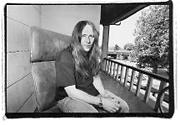IF YOU FIND campaign season annoying now, just imagine it with twice the money.
The maximum allowable donation to candidates for Seattle city offices—mayor, City Council, and city attorney—may soon be doubled from the current $400 to $800. The Seattle Ethics and Elections Commission forwarded that recommendation to the City Council last week.
Critics say the ruling will drive up the cost of campaigns and increase the political influence of big donors. “The guys who give $400 [now] would be happy to give $800, but the person who gives $25 can still only afford to give $25,” says Matthew Fox, a three-time campaign manager in city races.
The May 3 ruling by the commission came as a surprise to many observers. Supporters of the raise argue that candidates need the money to be effective. Reaching voters citywide requires the use of multiple targeted mailings; recent mayoral campaigns have seen extensive television advertising. Although Seattle, with 540,000 residents, is as large as a US Congressional district, the city contribution limit is well below the federal cap of $1,000.
“You can’t really doorbell an area that big even with the most grassroots campaign,” says political consultant Greg Dewar, a supporter of the proposed increase. He claims that the current contribution limit is so low that candidates are forced to spend hours on the phone seeking donations rather than interacting with the public.
Supporters of the change note that low contribution limits benefit wealthy candidates who dump thousands of dollars into their own campaigns. They also cite the growing use of independent expenditure campaigns, which last year spent more than $100,000 for advertisements supporting various Seattle city candidates.
But city campaign regulators have been disturbed by recent trends in campaign giving. The average contribution went from $88 in 1995 to $94 in 1997, rising to $105 last year. The percentage of donors making the maximum $400 contribution went from 29 percent in 1997 to 33 percent last year.
The Ethics and Elections Commission split 3-2 on raising the contribution limit (two members were absent from the meeting). Commissioner Paul Dayton argued, “We ought to invigorate the ability of candidates to make their views known.” Dayton also criticized the focus on disparities between the war chests of candidates in recent races—he believes campaigns that raise more money are simply “more successful.” The effect of the change could be significant. If the 195 donors who made the maximum donation to council member Heidi Wills’ campaign (last year’s top money-raiser) had given $800 instead, her war chest would have swelled from $194,288 to a Seattle-record $272,288.
Money doesn’t necessarily guarantee success: In four of the last seven open-seat council elections, the candidate who raised less money got more votes. Council member Peter Steinbrueck was outspent by almost a 2-to-1 margin in 1997; former council member Charlie Chong won a 1996 special election despite being outspent more than 3-to-1.
But Fox, who was Chong’s campaign manager in that race, says he couldn’t overcome similar funding disparities in two subsequent elections and his candidate lost. “I think we’ve guaranteed that city government will pretty much remain bought and paid for by the people who can buy and pay for it.”






